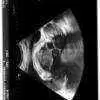-
Welcome to Celiac.com!
You have found your celiac tribe! Join us and ask questions in our forum, share your story, and connect with others.
-
Celiac.com Sponsor (A1):
Celiac.com Sponsor (A1-M):
-
Get Celiac.com Updates:Support Our Content
Trying To Figure Out My Sleep Problem
-
Get Celiac.com Updates:Support Celiac.com:
-
Celiac.com Sponsor (A17):
Celiac.com Sponsor (A17):
Celiac.com Sponsors (A17-M):
-
Recent Activity
-
- Jmartes71 replied to Ginger38's topic in Related Issues & Disorders13
-
- knitty kitty replied to Ginger38's topic in Related Issues & Disorders13




Recommended Posts
Archived
This topic is now archived and is closed to further replies.